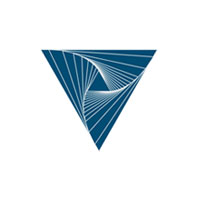Date: May 29, 2024, 12:30–13:30
Speaker: Prof. Dr. Kristel Michielsen (Forschungszentrum Jülich), ORCID
Location: (Hosted by ITCC/RRZK)
Weyertal 121, 50931 Cologne
RRZK (Google Maps, OpenStreetMap)
Room 1.03
Zoom link available upon request.
Title: Quantum computing: From the basic concepts to the embedding in an HPC environment for application purposes
Abstract:
Quantum computing promises unprecedented possibilities for important computing tasks such as quantum simulations in chemistry and materials science or optimization and machine learning. With this potential, quantum computing is increasingly attracting interest from industry and scientific communities that use high performance computing (HPC) for their applications. These pilot users are primarily interested in testing whether available quantum computers today or in the foreseeable future are suitable for simulating increasingly complex systems, analyzing large data sets using machine learning methods or performing the hardest optimization task.
Access to quantum computer emulators running on HPC systems and to state-of-the-art quantum computing systems are the prerequisite for testing, benchmarking, algorithm and use case design activities, and first serious applications in scientific and engineering challenges.
For practical quantum computing, HPC infrastructures shall integrate quantum computers and simulators (QCS) in addition to cloud access to stand-alone QCS. As longterm experience in conventional supercomputing demonstrate, the successful integration of QCS into HPC systems requires a focus on all three fundamental components of the HPC ecosystem: users and their applications, software, and hardware.
The "Jülich UNified Infrastructure for Quantum computing (JUNIQ)", a QC user facility at the Jülich Supercomputing Centre, meets these QCS access and integration needs. In addition, within JUNIQ, user support and training in HPC and QC usage is provided, software tools, modelling concepts and algorithms are developed, and it plays an important role in the development of prototype applications.
A broad user community will need to invest time and effort in developing new kinds of algorithms and software for real-world applications that take full advantage of the QCS as accelerators that speed up existing classical algorithms and software. In addition, a QCS full software stack will have to be developed that takes into account the various kinds of QCS hardware that is implemented on a variety of qubit platforms.
